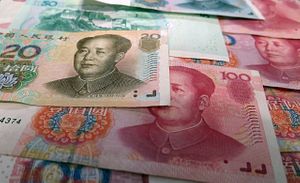Diplomat author Mercy Kuo regularly engages subject-matter experts, policy practitioners, and strategic thinkers across the globe for their diverse insights into Asian affairs. This conversation with Winston Ma – adjunct professor at the NYU School of Law and author of the newly published “The Hunt for Unicorns: How Sovereign Funds Are Reshaping Investment in the Digital Economy” (2020) – discusses the importance of sovereign wealth funds in the global economy, especially in terms of boosting tech champions.
Describe the impact of sovereign funds on the investment ecosystem. Why is this group of investors increasingly important for capital market players?
For that, here is a quick question: Who holds the power in financial markets? For many, the answer would probably be the large investment banks, big asset managers, and hedge funds that are often in the media’s spotlight. But a new group of sovereign investment funds, which includes some of the world’s largest sovereign wealth funds (SWF), government pension funds, central bank reserve funds, and other sovereign capital-enabled entities, have emerged to become the most influential capital markets players. They are estimated to have $30 trillion in assets under management and have enormous power in the financial world.
My first direct encounter with the sovereign funds was during the global financial crisis of 2007-2008, when I left Wall Street to join the newly established China Investment Corporation, the SWF of China. At that time, SWF was a new entrant to the global capital markets; now, it is hard to avoid the headlines that its activities attract.
Briefly explain how sovereign funds are reshaping investment in the digital economy.
Because of their ample resources, long time investment horizon, and their need to diversify globally, the sovereign investment funds are the new, powerful venture capitalists. They are drastically changing the tech investment rules of VC funds and Silicon Valley.
Thanks to the large size of their investments, they are the “unicorn makers.” They have shaken off their traditional, passive investor roles and stepped into the vanguard of the digital transformation we are all living through. They have fostered the rise of the likes of Uber, Alibaba, Spotify, and other transformative players in the digital economy, while providing their founders and business models the benefit of long-term capital.
What investment strategies differentiate China’s sovereign funds from other top-ranking counterparts in Norway, Abu Dhabi, and Singapore, among others?
China has the world’s largest internet population, and it is one of the most interesting innovation centers in the world. That is a huge advantage for China’s sovereign funds, hence the “China-angle” investment strategy.
That means CIC looks for investment opportunities that may be driven by China’s market growth – synergies between China and world markets. For foreign company investments, CIC could help the companies to design and execute innovative value-enhancing strategies in China. For example, a foreign e-commerce app may enjoy a jump in user traffic when it’s connected to the China market, where 900 million internet users are integrated by the same language, culture, and mobile payment.
Analyze the nexus of sovereign funds in the scope of international relations, technology, geopolitics, and globalization.
The general perception is that most sovereign investors lack transparency and have questionable governance controls, causing an investee nation to fear exposure to risks of unfair competition, data security, corruption, and non-financially or non-economically motivated investments. The current global tensions around the AI race and tech competition have exacerbated such misperceptions, spawning controversies around sovereign investors and capital markets, governments, new technologies, cross-border investments, and related laws and regulations.
Much of my new book serves to push for the normative standpoint that there can be positive economic and political effects that the sovereign investment funds can uniquely bring about – for example, their long-term capital is an important resource to cover the global infrastructure gap, both physical and digital. I hope that we, be it SIF investors, tech unicorns, VC funds, financial firms, policymakers, academics, or the general public, can move towards a more balanced understanding of SIFs in the modern political context.
Assess the role of the United States in shaping the global landscape of sovereign funds.
The U.S. is shaping the landscape in two significant ways. On one hand, the current global tensions have led to more scrutiny of foreign investments across all continents. The U.S., volume leader in inbound investment, is a bellwether in the expansion of the “national security” concept into ever more corners of the economy.
On the other hand, the U.S. is setting up its own sovereign funds for tech competition, most notably on 5G network technology developments. For example, the newly created U.S. International Development Finance Corporation, with $60 billion in funding, announced in December 2019 a program to provide finance to emerging markets in the development of mobile networks. Furthermore, earlier in 2020 a bipartisan group of U.S. senators introduced legislation that would provide over $1 billion to fund the development of Western alternatives to Huawei.
Therefore, we should no longer shy away from the reality that sovereign financing has always been as political as it is economic; instead, I advocate for balanced policy responses among all stakeholders. This book is a merely a starting point for future global dialogue.
































